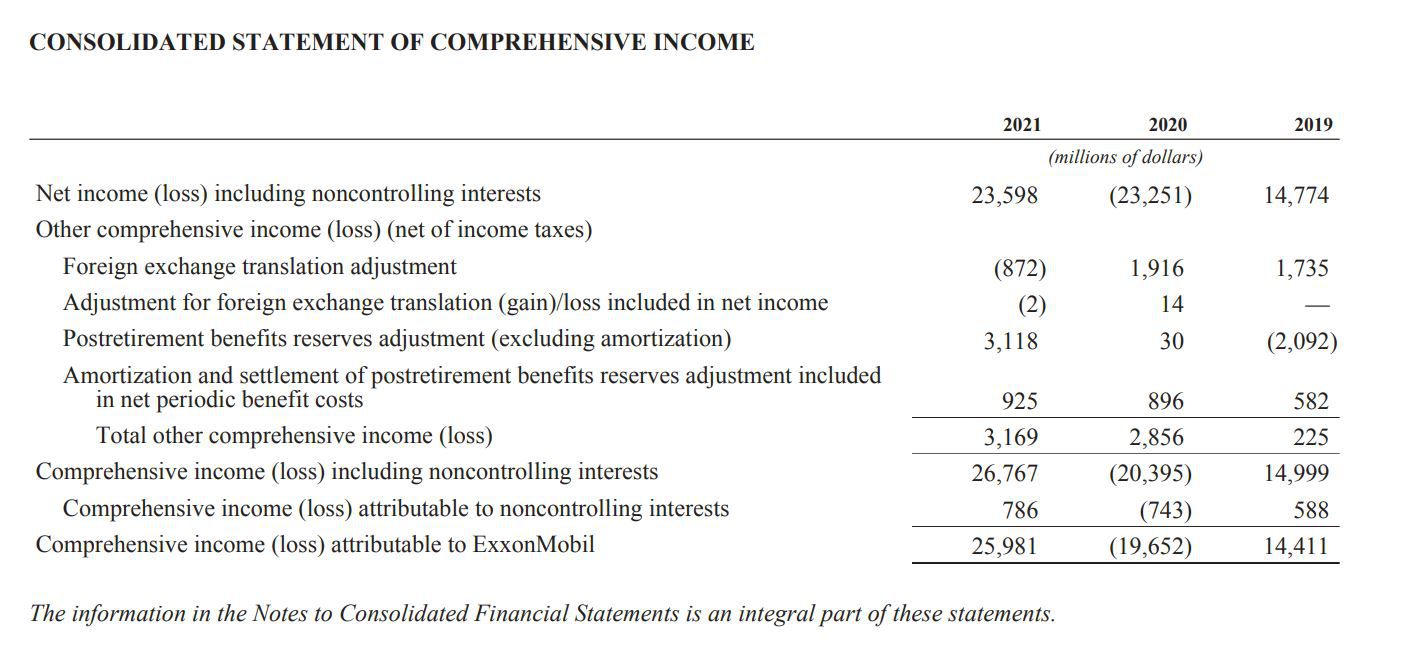Home>Finance>Does Your Credit Score Combined When You Get Married


Finance
Does Your Credit Score Combined When You Get Married
Published: October 22, 2023
Learn how marriage can affect your credit score and the financial implications it may have. Get tips on managing shared finances and improving your financial health.
(Many of the links in this article redirect to a specific reviewed product. Your purchase of these products through affiliate links helps to generate commission for LiveWell, at no extra cost. Learn more)
Table of Contents
Introduction
When it comes to marriage, there are many things to consider, from merging finances to building a shared future. One aspect that often gets overlooked is how marriage can impact your credit score. Your credit score plays a crucial role in your financial life, affecting your ability to secure loans, mortgages, and even job opportunities.
Before diving into the effects of marriage on credit scores, it’s essential to understand what credit scores are and how they are calculated. Credit scores are numeric representations of your creditworthiness, indicating the likelihood that you will repay borrowed money. They are based on various factors, including your payment history, credit utilization, length of credit history, types of credit, and recent credit inquiries.
With this understanding, it becomes clear why credit scores are so crucial. A higher credit score gives you better access to favorable interest rates and financial opportunities, while a lower score could result in higher interest rates or even denial of credit.
So, how does marriage come into play? When you say ‘I do,’ does your credit score combine with your spouse’s, or do you maintain separate scores? This is a common question couples have, and the answer is both simple and complex at the same time.
In short, getting married does not automatically merge your credit scores with your spouse. Each individual maintains their own credit score, and your credit history prior to marriage remains separate. However, there are factors after marriage that can impact your credit scores as a couple, which we will explore in more detail.
Understanding how marriage affects credit scores is vital for financial planning and ensuring a healthy financial future for you and your spouse. In the following sections, we will delve into the specifics of credit scores, the effects of marriage on these scores, and strategies to manage credit scores as a married couple.
Understanding credit scores
Before we discuss how marriage can impact credit scores, let’s first gain a deeper understanding of what credit scores are and how they are calculated.
A credit score is a three-digit number that represents your creditworthiness in the eyes of lenders and financial institutions. It provides insight into your financial behavior, indicating how likely you are to repay borrowed money. The most commonly used credit score model is the FICO score, which ranges from 300 to 850.
Credit scores are determined based on several factors:
- Payment History: This is the most significant factor and accounts for about 35% of your credit score. It refers to your track record of making timely payments on credit cards, loans, and other debts. Consistently paying bills on time can positively impact your score.
- Credit Utilization: This factor accounts for around 30% of your credit score and refers to the percentage of your available credit that you are using. It is generally recommended to keep your credit utilization ratio below 30% to maintain a healthy credit score.
- Length of Credit History: The longer you have had credit accounts open, the better it is for your credit score. This factor makes up about 15% of your score.
- Types of Credit: Lenders like to see a diverse mix of credit accounts, such as credit cards, mortgages, and auto loans. This factor accounts for about 10% of your credit score.
- New Credit Inquiries: When you apply for new credit, such as a credit card or loan, it can result in a hard inquiry on your credit report. Too many inquiries within a short period can negatively impact your credit score, accounting for around 10% of the score.
It’s important to note that credit scores are dynamic and can change over time based on your financial behavior. Regularly monitoring your credit score and taking steps to improve it can help you secure better financial opportunities in the future.
Now that we have a solid understanding of credit scores, let’s explore how marriage can influence these scores for individuals and as a couple.
How credit scores affect your financial life
Understanding how credit scores impact your financial life is crucial for making informed decisions and taking control of your financial future. Here are some ways in which credit scores can affect various aspects of your financial life:
- Interest rates: Your credit score plays a significant role in determining the interest rates you’ll receive on loans, credit cards, and mortgages. A higher credit score typically results in lower interest rates, saving you money over the long term.
- Loan approvals: Lenders use credit scores to assess the risk associated with lending money. A higher credit score increases your chances of getting approved for loans, while a lower score may result in denials or higher interest rates.
- Rental applications: Landlords often review credit scores when considering rental applications. A low credit score may make it challenging to secure a desired rental property or require a higher security deposit.
- Insurance premiums: Credit scores can impact your insurance premiums. Insurance companies believe that individuals with lower credit scores are more likely to file insurance claims, leading to higher premiums.
- Employment opportunities: Some employers may review credit scores as part of their hiring process, particularly for positions that involve financial responsibilities. A poor credit score could potentially impact your chances of securing certain job opportunities.
These are just a few examples of how credit scores can influence your financial life. Maintaining a good credit score is essential for maximizing your financial opportunities and minimizing unnecessary costs.
Now that we understand the significance of credit scores, let’s delve into how marriage can impact these scores.
How marriage affects credit scores
When it comes to marriage, many couples wonder how their credit scores will be affected. It’s important to note that getting married does not automatically merge your credit scores with your spouse’s. Each individual maintains their own credit score, and their credit history prior to marriage remains separate.
However, certain factors related to marriage can indirectly impact your credit score as a couple:
- Joint accounts: If you and your partner decide to open joint accounts, such as joint credit cards or loans, the way you manage them can impact both of your credit scores. If you make timely payments and keep the accounts in good standing, it can positively affect your credit scores. On the other hand, late payments or defaulting on the accounts can harm your scores.
- Co-signing: If one spouse has a lower credit score or limited credit history, they may need the other spouse to co-sign on loans or credit applications. By doing so, the responsible spouse becomes equally liable for the debt. If the co-signed debt is mismanaged or defaults, it can negatively impact both spouses’ credit scores.
- Mixing finances: When couples merge their finances, it can lead to shared responsibilities for debts and bills. If one spouse has a history of late payments or high credit utilization, it can indirectly impact their partner’s credit score if they share financial responsibilities.
It’s essential for married couples to communicate openly about their individual credit scores, debts, and financial goals. By maintaining transparency and having a joint strategy for managing finances, couples can avoid potential pitfalls and work towards improving their credit scores together.
It’s worth noting that in some cases, individuals choose to keep their finances completely separate even after marriage. In such cases, the impact of marriage on credit scores may be minimal as long as each individual maintains their own credit accounts and manages them responsibly.
Now that we have covered how marriage can indirectly affect credit scores, let’s explore the factors that can influence credit scores after marriage.
Does your credit score combine when you get married?
When you get married, your credit score does not merge or combine with your spouse’s credit score. Each individual maintains their own credit score, and their credit history prior to marriage remains separate. This means that your credit score is based solely on your individual financial behavior and credit history.
While your credit score may not merge with your spouse’s, it’s important to remember that your financial actions as a couple can still have an impact.
For example, if you and your spouse decide to open joint accounts, such as joint credit cards or loans, your responsible use of those accounts can positively affect both of your credit scores. Conversely, if you mismanage the joint accounts and accumulate debt or miss payments, both of your credit scores may be negatively affected.
It’s also important to note that while your credit scores may not combine, lenders may consider both of your credit scores during the application process for joint credit accounts or loans. This is because lenders want to assess the overall creditworthiness of the couple when considering joint financial obligations.
Additionally, if one spouse has a significantly higher credit score than the other, it may be beneficial to consider that spouse as the primary applicant for loans or credit applications. This can help secure more favorable interest rates and terms.
Ultimately, even though your credit scores don’t merge when you get married, it’s essential for couples to have open and honest discussions about their credit histories, financial goals, and strategies for managing finances together. By working together, you can make informed decisions that can benefit both of your credit scores and overall financial well-being.
Now let’s explore some factors that can impact your credit score after marriage.
Factors that can impact your credit score after marriage
After getting married, there are several factors that can impact your credit score as a couple. It’s important to be aware of these factors and take proactive steps to manage them responsibly. Here are some key factors that can affect your credit score after marriage:
- Joint accounts: Opening joint credit cards, loans, or bank accounts means that both spouses are equally responsible for the debt and payment history associated with those accounts. Late payments or defaulting on joint accounts can negatively impact both credit scores.
- Co-signed loans: If one spouse has a lower credit score or limited credit history, they may need the other spouse to co-sign on loans or credit applications. The co-signing spouse becomes equally liable for the debt, and any issues with repayment can impact both credit scores.
- Financial mismanagement: Irresponsible financial behaviors such as accumulating excessive debt, maxing out credit cards, consistently making late payments, or defaulting on loans can harm both spouses’ credit scores. It’s essential to maintain good financial habits and communicate openly about shared financial responsibilities.
- Individual credit histories: While credit scores don’t merge when you get married, lenders may still consider both spouses’ credit histories when evaluating joint applications. If one spouse has a significantly lower credit score, it could impact the couple’s ability to secure favorable interest rates or approval for certain loans.
- Financial communication: Effective communication and alignment on financial goals, spending habits, and budgeting can help maintain healthy credit scores. Regularly discussing financial matters and making joint decisions can prevent misunderstandings and avoid potential credit score pitfalls.
- Changes in income: Significant changes in income, such as a job loss or reduction in income, can impact your ability to make timely payments and maintain a good credit score. It’s important to adjust your financial plans accordingly and communicate with lenders if necessary.
By being proactive in managing these factors and maintaining responsible financial habits, you can work together as a couple to maintain and improve your credit scores over time.
Now, let’s explore some strategies to manage credit scores effectively as a married couple.
Strategies to manage credit scores as a married couple
Managing credit scores effectively as a married couple requires open communication, shared financial goals, and responsible financial habits. Here are some strategies to help you maintain and improve your credit scores:
- Communicate openly: Regularly discuss your individual credit scores, debts, and financial goals. Transparency and open communication are key to understanding each other’s financial situations and working together towards shared objectives.
- Create a budget: Establish a joint budget that outlines your income, expenses, and savings goals. By tracking your spending and adhering to a budget, you can avoid unnecessary debt and ensure timely payments.
- Pay bills on time: Timely bill payment is crucial for maintaining good credit scores. Set up reminders or automate payments to avoid late payments and potential negative impacts on your credit scores.
- Monitor your credit reports: Regularly check your credit reports for errors or discrepancies that may affect your credit scores. You are entitled to a free credit report annually from each of the major credit bureaus.
- Manage joint accounts responsibly: If you have joint accounts, ensure that you both are on the same page about managing them responsibly. Make timely payments and keep your credit utilization low to positively impact both of your credit scores.
- Discuss financial decisions: Before making any major financial decisions, such as taking on new debt or making a large purchase, discuss the potential impact on your credit scores. Consider how it aligns with your long-term financial goals as a couple.
- Build individual credit: While maintaining joint accounts can be beneficial, it’s also important for each spouse to build and maintain their individual credit. This can be done by having individual credit cards or loans in each person’s name.
- Seek professional advice if needed: If you are struggling with managing your credit scores or have significant debt, consider seeking help from a financial advisor or credit counseling organization. They can provide guidance and help you develop a plan to improve your financial situation.
Remember, managing credit scores as a married couple is a joint effort. By implementing these strategies and working together, you can strengthen your financial foundation and ensure a healthy financial future.
Now, let’s conclude our discussion on managing credit scores as a married couple.
Conclusion
Managing credit scores as a married couple is an essential aspect of maintaining a healthy financial life together. While your credit scores do not automatically combine when you get married, certain factors related to marriage can impact your credit scores as a couple.
Understanding how credit scores work and the factors that influence them is crucial for making informed financial decisions. By maintaining open communication, setting shared financial goals, and practicing responsible financial habits, you can work towards maintaining and improving your credit scores.
Remember to communicate openly about your individual credit histories, debts, and financial goals. Establishing a joint budget and making timely payments can help in building a solid financial foundation. Additionally, monitoring your credit reports regularly and addressing any errors or discrepancies is vital for maintaining accurate credit information.
While managing joint accounts, ensure that you and your spouse are on the same page about responsible usage to avoid negatively impacting both of your credit scores. It’s essential to make joint financial decisions after considering their potential impact on your creditworthiness.
Finally, remember to seek professional advice if you find yourselves struggling with managing your credit scores or have significant debt. Financial advisors or credit counseling organizations can provide guidance tailored to your specific situation.
By implementing these strategies and working together, you can navigate the complexities of credit scores as a married couple and pave the way for a successful financial future. Building a solid credit foundation will not only benefit you as a couple but also provide you with greater financial opportunities and stability for years to come.














